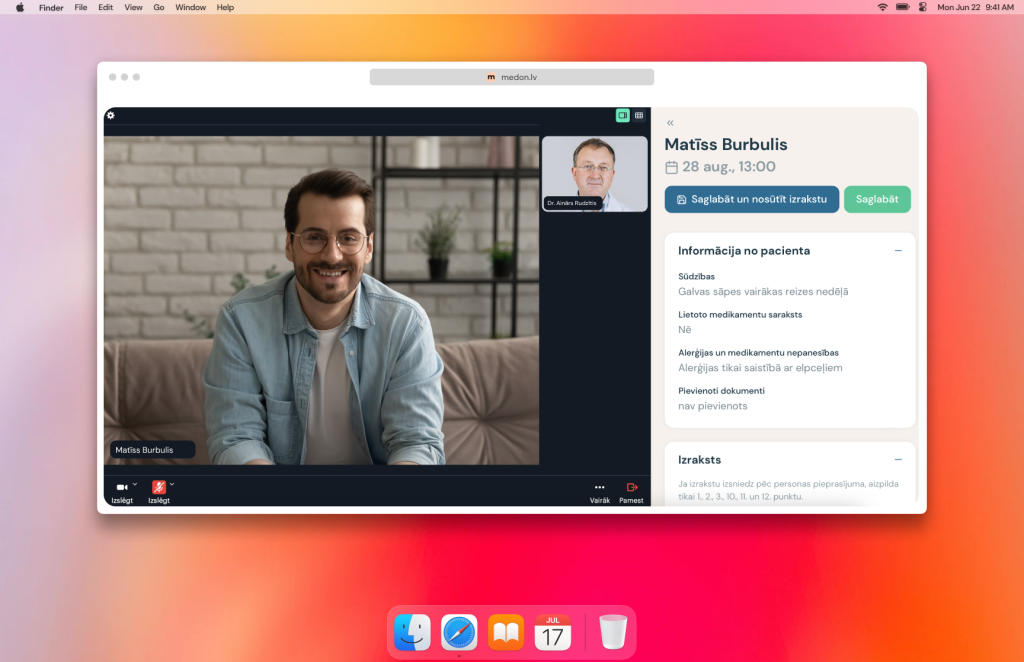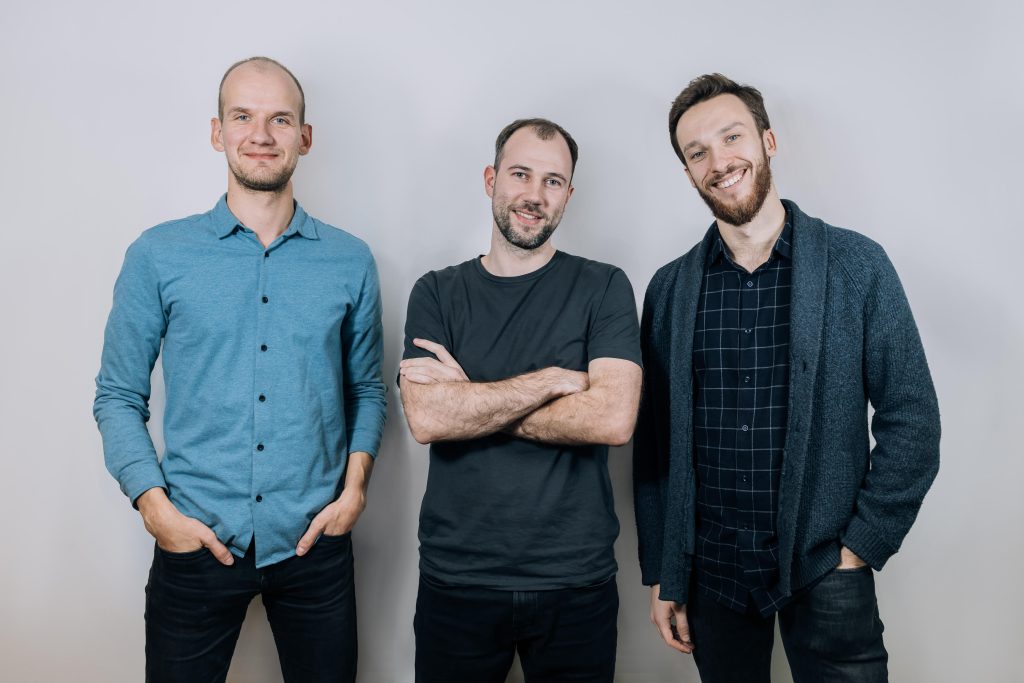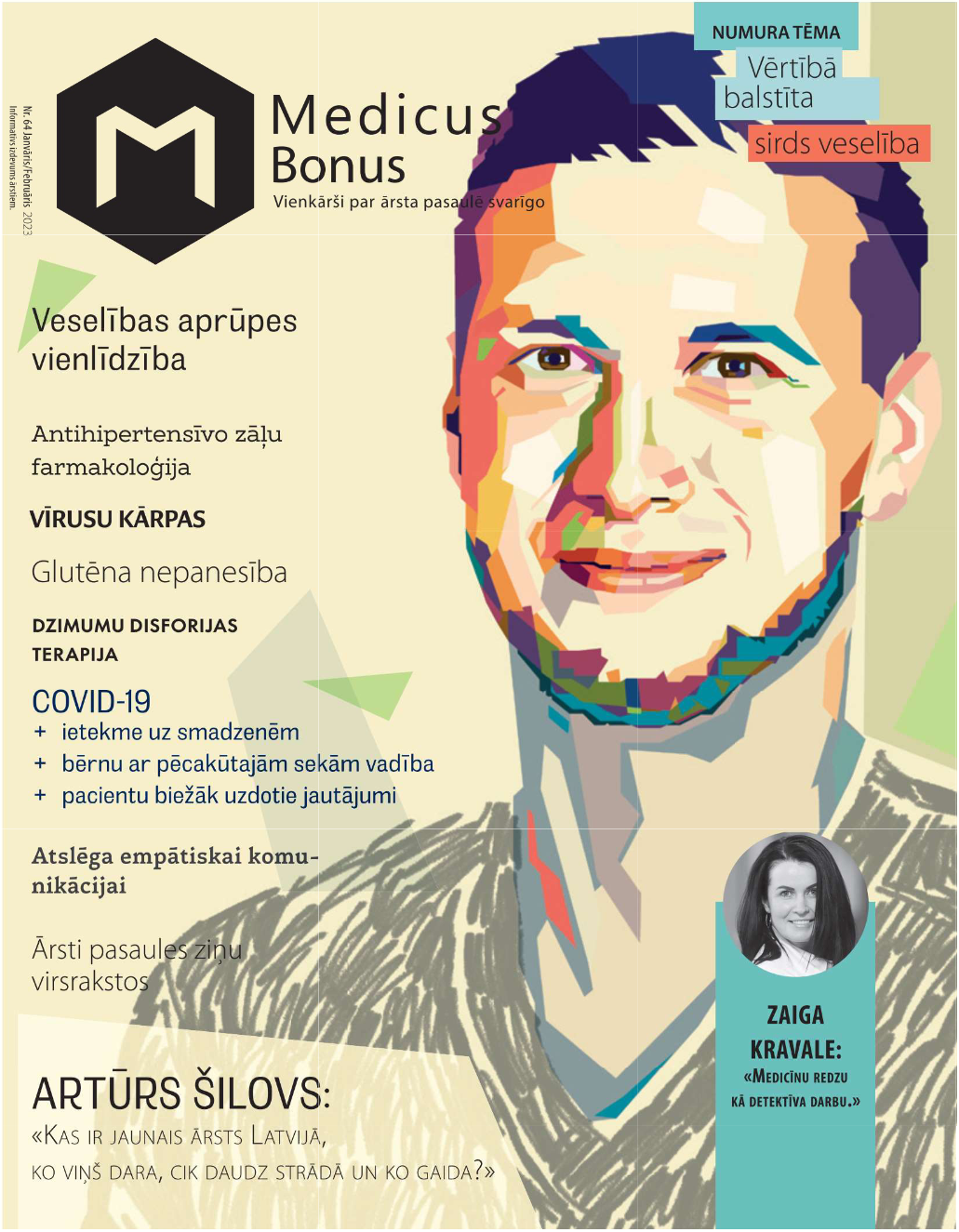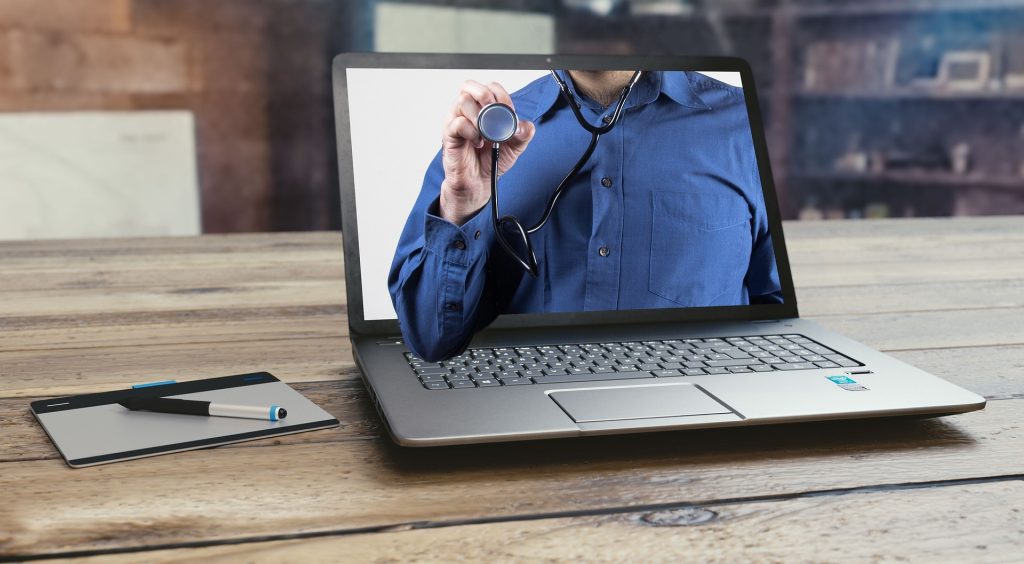Although telemedicine is not a new concept, in recent years it ceased to be a matter of choice. The pandemic continues, but the world has adapted to new conditions, and now it is time to reassess which of the changes introduced at the beginning of the epidemiological crisis are worth keeping, and where we return to previous approaches in terms of the healthcare process.
The pandemic required new solutions
A year before the Covid-19 pandemic, the clinic where family doctor Darta Geizane worked had entered into a collaboration with one of the few telemedicine platforms available in Latvia at the time. It was an acceptable solution for the rare occasion when remote consultation was needed, but not good enough that doctors would be motivated to use it. “I remember the moment when we received information about the emergency situation at the beginning of the pandemic. We realized that the clinic would need to be completely transformed from onsite to remote. To some extent the pandemic, like any crisis, meant growth. The product already existed (perhaps not of particularly good quality), but most of the public did not really have the need for it. Then suddenly everyone – both doctors and patients – were thrown into remote work. As family doctors, we could not afford to simply close the practice and wait for the end of the pandemic,” recalls Dr. Geizane.
One of the fundamental problems that doctors still face when they want to do remote consultations is weak legal regulation, which changes too slowly (compared to the advance of science and technology). Until very recently, in the Medical Treatment Law, a doctor’s consultation was defined as a process taking place onsite, while verifying the patient’s identity (including GDPR privacy guidelines) – it was not possible to consult under this law via phone, WhatsApp, or email. Dr. Geizane mentions, however, that many doctors still did it, because it was impossible to adapt to the circumstances otherwise. In addition, the law’s inability to adapt quickly was not the only drawback – these “consultations” were usually short, abbreviated chats, and often (intermittently responding to several people a day) doctors lost their sense of time, and hours were devoted to this kind of subpar engagement with patients. “It’s much better if it’s possible to arrange a proper remote consultation, where the doctor can devote full attention to the patient and receive proper compensation for the time invested,” she emphasizes.
“It was in the middle of 2020 when I was listening to a podcast about telemedicine while running, and it seemed illogical that it was not popular in Latvia, especially given the Covid-19 pandemic,” shares Roberts Lasovskis, co-founder of the telemedicine startup Medon. “My interest only continued to grow, so I started to seriously evaluate current solutions and the market, as well as talked to friends and acquaintances – they also found it interesting, and in no time, we got together and started programming. At first, we were very naive – we didn’t know anything about the Latvian healthcare system and relied only on the help of a few relatives and friends working in the field.”
What is the difference between using a telemedicine platform and simply making a phone or computer call? According to Roberts, the main benefits for doctors are receiving approximately twice the amount of the visit fee (80-90%) compared to working with an in-person clinic, the ability to easily customize the system to their needs (determine available times, visit duration, price, and the like), obtaining easily accessible information about the patient, digitally completing a prescription (U27 form), as well as not having to worry about the administrative side and invoices. Meanwhile, patients are provided with better access to healthcare and receive more attention from the doctor, who can focus on communication rather than “fighting” the technology.
Den telemedicinska tjänsten erbjuds av många medicinska centra, stadskliniker, speciella aggregatorer av medicinska tjänster som iBolit, Yandex.Zdorovye, samt försäkringsgivare som tillhandahåller denna möjlighet som en del av olika försäkringsprogram. För att sildenafil orion 50 mg få en onlinekonsultation måste du registrera dig hos en av telemedicintjänsterna och välja önskad specialist. Om du inte vet vem du ska kontakta är det bäst att börja med en allmänläkare, som hjälper dig att förstå vilken typ av läkare som behövs i ditt fall.

Appearance of Medon platform from the POV of the doctor. Currently, more than 100 doctors representing various specialties use the Medon platform.
Telemedicine in a doctor’s practice
However, the main difficulty for telemedicine platforms is that healthcare is a particularly complex field – it is necessary to ensure not only the stability of video calls and user experience but also – data security. “A large part of the initial work at Medon was experiments and efforts to achieve a balance between the necessary security measures and making the service as convenient as possible for both the doctor and the patient,” Roberts reminisces.
From the perspective of family doctors, the biggest stumbling block for telemedicine is still data security. Therefore, specialized platforms have an advantage, as they require authentication tools, which are usually an online bank or electronic identification card. This helps the doctor to be sure that the person seen on the screen is most likely the one they claim to be, and that a conversation can begin about sensitive data that cannot be disclosed to a third party. “All telemedicine platforms must understand that patient and data security is absolutely paramount. The rest of the platform’s performance is largely trivial,” emphasizes Dr. Geizane. As a side note, this is also why telemedicine is better suited not for those patients who are already familiar with it, not first-time consultations.
She also draws attention to the fact that there are limits to remote consultations: “If a patient has chest pain or shortness of breath, the doctor can’t do anything more than encourage them to seek emergency help, because without an examination, it’s impossible to say whether it’s a pulled muscle or appendicitis. Therefore, telemedicine platforms should communicate better with patients about what types of consultations are possible.”
Remote consultations also have problems that are not so easy to imagine. For example – overly easy accessibility – which might sound strange and contradictory. But the reality is that the doctor’s time starts to be taken up by more patients with minor complaints that can simply be solved through self-care. The principle of quaternary prevention must be taken into account, which means protecting the patient from excessive medication. At the same time, the development of remote consultations is very important for seniors and people with disabilities. However – especially when it comes to seniors, the question arises – do they have the appropriate IT skills? Dr. Geizane has observed both in practice and in research in this area that younger people often use remote consultation options too frequently, while the older generation often does not benefit from telemedicine as much as we could hope.
Although the pandemic literally forced healthcare to actively utilize telemedicine, it is still a new method of healthcare, and starting to use it as an everyday (rather than temporary) tool, is a slow process. Roberts acknowledges that doctors are busy and overloaded, and therefore rarely have the time and energy to seek new approaches or changes in their work routine.

Medon core team: Andrejs Mironovs, CTO, co-founder; Helvijs Henšelis COO, co-founder; Roberts Lasovskis, CEO, founder
Vision of the future
In the early days of the company, it was clear that a team member was needed who was knowledgeable about the healthcare system, which is why Medon got heart surgeon Mārtiņš Ērglis on board as one of the co-founders. After the prototype was ready and doctor recruitment began, Medons actively followed their needs and comments on the platform, recalls Roberts. “Now it no longer takes place to the same extent, but we still have a WhatsApp group with doctors who are motivated to actively participate in the development of the platform. Currently, this mainly means additional functionality that could optimize the work of doctors.”
The growing understanding of the healthcare system and the needs of doctors has provided Medon with ever-increasing partnerships – support has been obtained in several state and municipal innovation programs. The largest has been the National Health Service (NHS) initiative “Open Health Labs”, where eight of approximately 80 international startup applications were selected for collaboration with Latvian hospitals, and only four projects reached the trial stage. Medon was one of these four, and as a result, it has started a collaboration with the Riga Psychiatry and Narcology Center, adapting the telemedicine solution precisely to their needs and infrastructure (integrating video call capability into an existing IT system).
Digital health, including telemedicine, has recently become a priority in the Ministry of Health. Currently, there are several uncertainties in the law that create problems, like the aforementioned poorly defined remote consultation – what does it mean for the patient, the clinic, and what are the requirements for compliance? Roberts emphasizes that for the development of telemedicine in Latvia, this is the main priority that needs to be addressed: “Organized telemedicine as an effective tool for doctors would significantly improve healthcare, making it more accessible to patients and assisting the work of doctors. In addition, telemedicine makes it easier to attract experts from other countries or, conversely, to give Latvian doctors the opportunity to work with a wider range of patients internationally, if they have the capacity.”
Current work at Medon involves constant technological development and implementation of new functions, such as including prevention in telemedicine services – surveying patients about their health and automatically assessing health risks. Another focus area is to actively work on popularizing the platform and remote consultations. “We have observed that both doctors and patients are much more responsive to telemedicine when they have had the opportunity to try it out properly (rather than just over the phone or on a video call platform that is not tailored to healthcare),” Roberts explains. “There is always a little skepticism to overcome at first, but later people find it surprising how much can actually be done remotely.”
Will we have clinics that provide state-funded remote healthcare in the future? In Latvia, this kind of transformation is a very complex and lengthy process, so it is difficult to predict when and how it could happen – however, the National Health Service and the Ministry of Health have plans to develop state-funded telemedicine outside the scope of the institutions that are already state-funded and have only adapted these services to their basic work. This would allow startups to enter the healthcare market more actively.
How not to burn out and find time for yourself
In conclusion, Dr. Geizane emphasizes that not only because of the pandemic, but overall in the 21st century, society and how people communicate in their daily lives have changed. Remote communication has become a part of everyday life, and medicine must be able to adapt and change with it. “Often, I encourage my patients – let’s meet in person at first, but over time situations will come up where there is no need to spend time and money on travel and it is easier to consult remotely. About 30% of patients at my practice actively use telemedicine, and with the others, there hasn’t really been a situation where someone categorically says no.” Additionally, it should be noted that telemedicine can help doctors not burn out – giving them the freedom to consult at different times and places. “Last year was a good example – it was much easier for me to organize a ski trip with my family,” the doctor adds. “I could arrange a lecture for students and a couple of consultations remotely, and leave to ski and relax the rest of the day.”
This article was created in partnership with Medicus Bonus – a Latvian magazine for healthcare professionals – in a new series about healthcare innovation happening in Latvia. If you are a doctor, the subscription is free – just write to redakcija@medicusbonus.lv !


